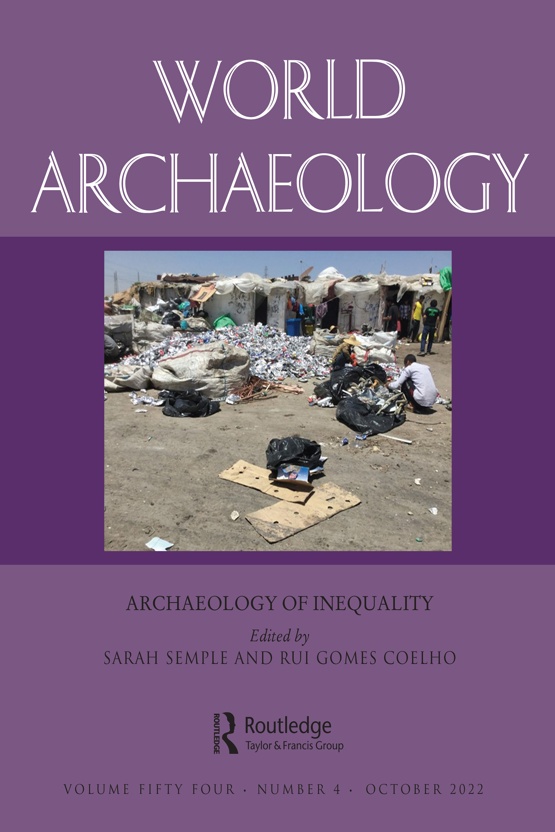Submit a Manuscript to the Journal
World Archaeology
For a Special Issue on
Debates and Emerging Issues in Deurbanisation
Manuscript deadline
31 October 2024

Special Issue Editor(s)
Yijie Zhuang,
Institute of Archaeology, University College London.
[email protected]
Debates and Emerging Issues in Deurbanisation
The archaeology of urbanisation has been both blessed and burdened by an explosion of research data and unfading academic enthusiasm for theories. In amassing and analysing data collected from exploration of urban centres and their hinterlands across diverse environments and habitats, archaeologists have developed sophisticated methods and models to unravel the multi-directional processes and multi-faceted networks that underlie individual and collective human activities in shaping diverse urban landscapes. However, such research continues to be dominated by a unilinear perspective, which often considers cities or urban sites as ever-expanding entities with centralizing powers towards which rural elements orbit. Even scholars who hold the most critical, anti-linear approach to the archaeology of urbanisation, are often tempted to suggest that cities have unparalleled economic and political advantages that result in a centralized movement of social evolution from simple to complex, and from backward to advanced.
Against the backdrop of this unilinear approach on urbanisation, there are numerous archaeological examples of settlement contraction, decentralisation, regression from agriculture to hunting and gathering and/or pastoralism, and demographic shifts away from urban settings. Deurbanisation and anti-urbanisation offer alternative perspectives for understanding the complex, non-linear processes of socioeconomic development in an increasingly cascading network of things, people, systems and ideas. Such perspectives advocate both the dynamic and dual-directional interactions between the urban and rural areas, and the regressive, ‘backward’, and conservative altitudes and ethea towards technological advancement, demographic shift, and territorial expansion.
This Special Issue calls for articles that explore the modes, processes, and contributing factors to deurbanisation, decentralization, and/or degrowth in urban, non-urban, proto-urban, and other forms of environmental and socioeconomic settings. Do urbanisation, economic and/or political centralization, and social hierarchy always develop hand-in-hand? Alternatively, do deurbanisation and decentralization occur in both hierarchical and heterarchical social frameworks? What drives deurbanisation and anti-urbanisation and what are the implications to understand social evolution?
We invite papers on a range of topics for this Special ‘Debates’ Issue, that engage with emergent ideas and issues and debate archaeological examples of deurbanization and anti-urbanisation. The editor welcomes topics including, but not limited to: de-coupling Euro-centric scholarship on urbanisation with archaeological examples across different environments and landscapes; proxies, theories and methods related to the archaeology of deurbanisation and anti-urbanisation; allogenic and autogenic drives of deurbanisation and anti-urbanisation; diverse forms and processes of deurbanisation and anti-urbanisation and their socio-political ramifications; economic regression, technological retrogression, and deurbanisation; seasonality, settlement patterns and deurbanisation; urbanisation, deurbanisation, anti-urbanisation, and origins of early complex societies, and so forth.
Looking to Publish your Research?
Find out how to publish your research open access with Taylor & Francis Group.
Choose open accessSubmission Instructions
Papers should be in the region of 5000 words including bibliography. Please contact the editor by email with a short abstract well in advance of the deadline to discuss your submission - [email protected]